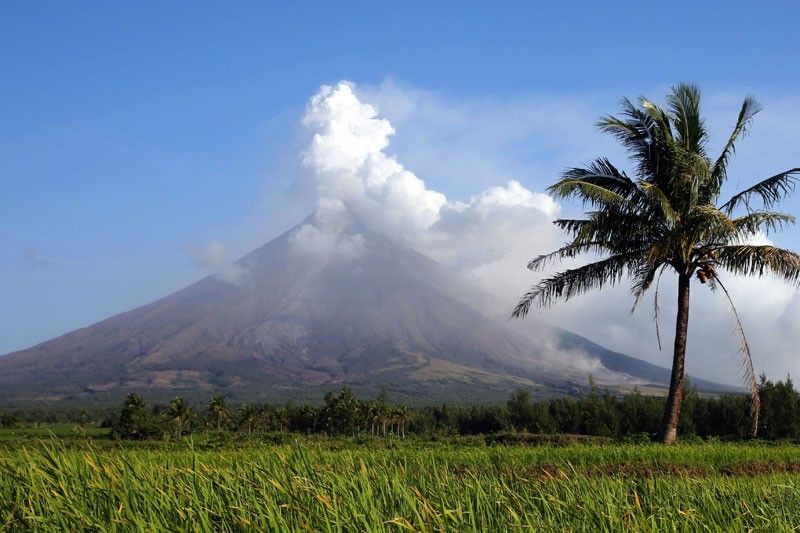by Dahli Aspillera
GINA Lopez, environmentalist and philanthropist: “We can get our country out of poverty. I need the help of the Department of Science and Technology (DOST),” at a National Science & Technology Week celebration.
A pioneer in corporate social responsibility, Lopez has taken her advocacy to the next level. Her foundation called ILOVE (Investments in Loving Organizations for Village Economies) launched “Quest for LOVE” a nationwide search for loving organizations seeking to transform marginalized communities into agro-forestry, fisheries, or eco-tourism sites.
Lopez was looking at DOST’s program called CEST (Community Empowerment through Science and Technology) as the help she needs to aid the country in getting out of poverty. CEST is a program of the DOST which aims to alleviate poverty through S&T interventions in health and nutrition, water and sanitation, basic education and literacy, livelihood and enterprise development, and disaster risk reduction and management.
ILOVE reached out to several government agencies to give a hand. Because of its CEST program, the DOST became one of the ILOVE’s partners. Other partner government agencies include Department of Trade and Industry, Department of Social Welfare and Development,
Department of Tourism, Department of National Defense, Department of Public Works and Highways, Technical Education and Skills Development Authority, the Social Economy Action Research Foundation, Bayan Academy for Social Entrepreneurship and Human Resource Development, and the private sector. The ILOVE-government partnership raised P5 million.
Because of its noble intent, ILOVE caught the heart of DOST Secretary Fortunato T. de la Peña: “I would like to express my admiration to the Quest for LOVE. This is very relevant, timely, and innovative. We have a program that matches ILOVE very well and we call it CEST.” To date, the CEST program has already benefited many grassroot communities around the country. One example is Barangay Apang in Alilem, Ilocos Sur which was dubbed as the poorest of the poor in most surveys. Farmers and fisherfolks are now able to find alternative income by selling fruits and vegetables in nearby markets and stores to be able to buy other goods for their families. Unlike the usual reality TV competitions that showcase talents such as singing and dancing, the Quest for LOVE wants to put the spotlight to loving organizations that are passionate and goal-driven.
Lopez: “The stand of ILOVE is to bring genuine economic growth through area development. Why do we just give awards to those who sing well? Why don’t we give awards to communities that have the guts and creativity to help themselves get out of poverty?” The competition will feature the journey of the transforming poor communities into social and economic enterprises in a reality TV show that Lopez will produce.
ILOVE’s “Lola Sayong Eco Surf Camp” in Gubat, Sorsogon--a kind old lady transformed her property where local street kids were provided food, shelter and jobs by giving surfing lessons to tourists. “... I got money from Energy Development Corporation (EDC); we put surfboards, boat refurbishing, beach tents, multi-purpose hall, toilet and shower facilities, and glass bottom floating cottages. It is area development.” From being a poor community, Gubat has grown to be a role model for area development. From P1.5 million, after a year, their gross revenue already increased to P5.9 million. “Because of the investment of P1.5 million, agriculture and fisheries came up. The cost of transportation was affected because a lot of people are going there. Also, other ecotourism sites sprang up in nearby towns like Sorsogon City, Bulusan, and Mat.
The project also provided new services as the town now has massage therapists and tourist guides as well as emerging developments in other micro enterprises such as T-shirt printing, souvenirs, handicrafts, and food production. “One thing that I want to say from my experience is that: the key is the change agent. You can have a lot of money, scientists, or government assistance, but if you do not have a change agent, it is not going to work....The spirit of the Quest is to search for loving organizations that have the LOVE idea: a great, splendid idea on how to lift up village economies.”
The Quest is open to social enterprises, cooperatives, people’s associations, foundations, NGOs, and other socially-oriented organizations. They must have an ongoing intervention program for a specific community and/or have completed at least two successful community
development programs in the past. Sixteen organizations will be pitched in the initial screening and will be trimmed down to the Top eight deserving loving organizations that shall receive PhP 100,000 plus direct access to government support.
The Quest for LOVE will run for eight months and will be aired as a segment in Gina Lopez’s TV program “G-Diaries”. At the end of the period, the top three loving organizations will be awarded based on tangible enterprise and the social and environmental outcomes they achieved.
The winners shall receive additional direct assistance from ILOVE and its private and government partners. For the complete mechanics and details of the project, visit http://www.questforlove.ph.





